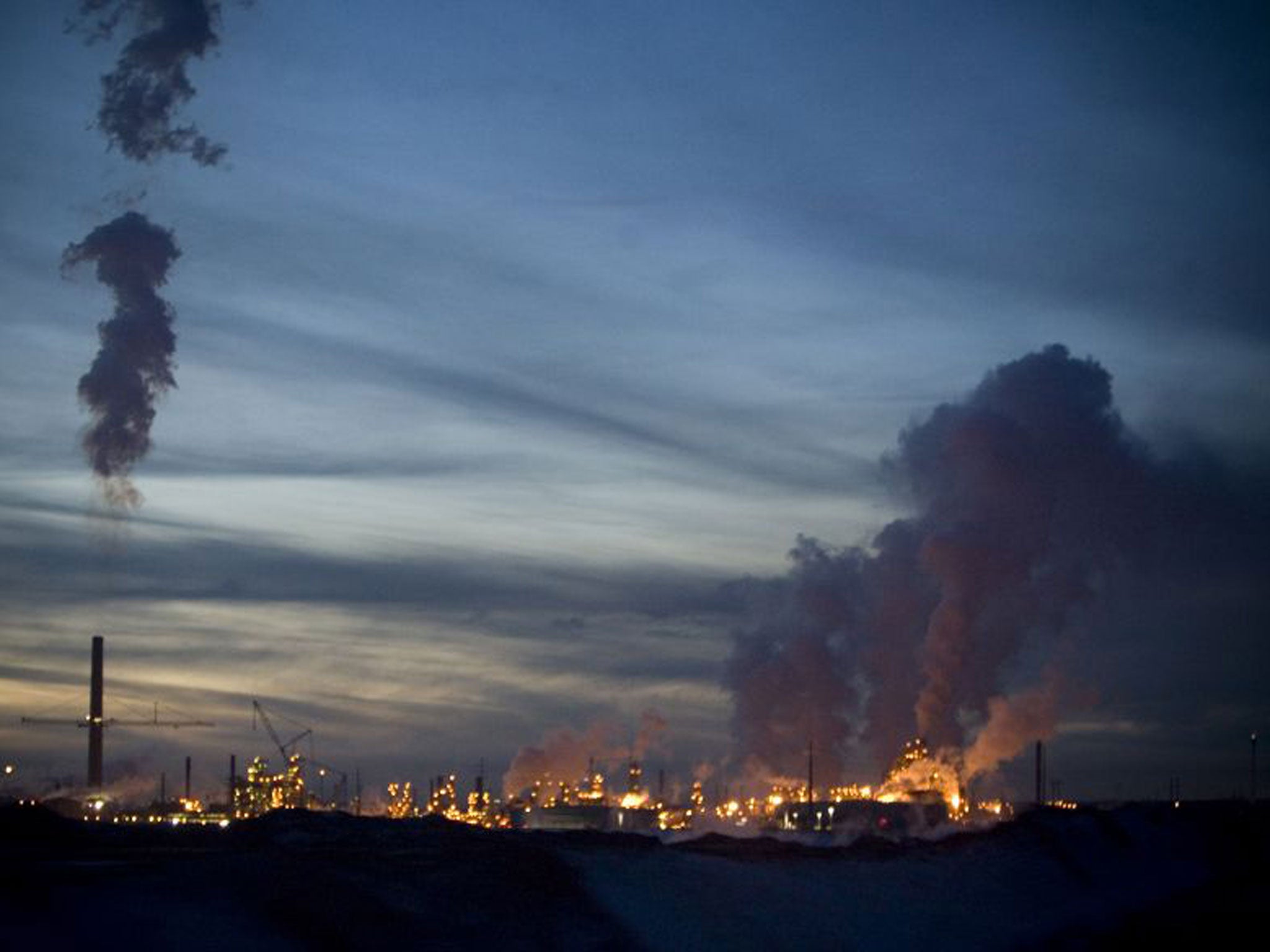Barclays tell AGM new extreme oil policy on way as First Nations protest over Canadian tar sands pipeline
Now an outlier after HSBC last month said it would cease financing most new extreme oil and coal power projects, it's time for bank to act

There was a poignant moment at Barclays’ AGM today when Ocean Hyland, a 22-year-old First Nations activist from Canada, raised the issue of the bank financing a tar sands pipeline in British Columbia.
The Tsleil Waututh Nation fiercely opposes the development, which it fears will increase tanker traffic and bring with it a heightened risk of oil spills and pollution, facilitating the expansion of the Alberta Oil Sands in the process. It is backed by environmental organisations such as Greenpeace.
In March, I highlighted a damning report on the banking industry’s financing of extreme fossil fuels like this, which according to a coalition of non profit organisation surged to a $115bn (£84bn) in 2017.
Britain had only one bank in the top ten worst offenders in the form of HSBC. But last month that bank said it would mostly stop funding new coal power plants, tar sands projects and arctic drilling, a welcome sign of progress.
“We recognise the need to reduce emissions rapidly to achieve the target set in the 2015 Paris Agreement... and our responsibility to support the communities in which we operate,” Daniel Klier, HSBC’s group head of strategy and global head of sustainable finance, said at the time.
The decision was pragmatic: banks like his will suffer as much as the rest of us as the malign consequences of carbon pollution mount and the global economy takes the hit.
It also leaves Barclays as an outlier.
The answer Ms Hyland received when she raised the issue was similar to the one I got when I followed it up with the bank: We’re looking at the issue and preparing new policies for publication on extreme oil and on climate change.
At the meeting the re-election of Barclays chief executive Jes Staley was backed by more than 99 per cent of investors, despite the Financial Conduct Authority saying it wants to fine him for an attempt to unmask a whistleblower and the presence of activist Ed Bramson on the shareholder register. He's seeking a shake up.
In his opening remarks, Mr Staley declared “the huge task of restructuring Barclays” to be complete while hailing the “considerable progress” made against his strategy of making Barclays a transatlantic consumer and wholesale bank anchored in London and New York with “very positive consequences for the future”.
That could be seen as sending a message to Mr Bramson: We're on the right track so pipe down.
If that is so and Barclays is the strong bank with the potential Mr Staley says it has, the financing of the destructive activities Ms Hyland opposes, which represent only a relatively small part of its business, ought to be unnecessary.
It is thus to be hoped that the promised publications will represent more than a PR whitewash and signal their end, sparing Ms Hyland, who travelled more than 4,000 miles to attend the AGM, from another long flight next year.
Join our commenting forum
Join thought-provoking conversations, follow other Independent readers and see their replies
0Comments